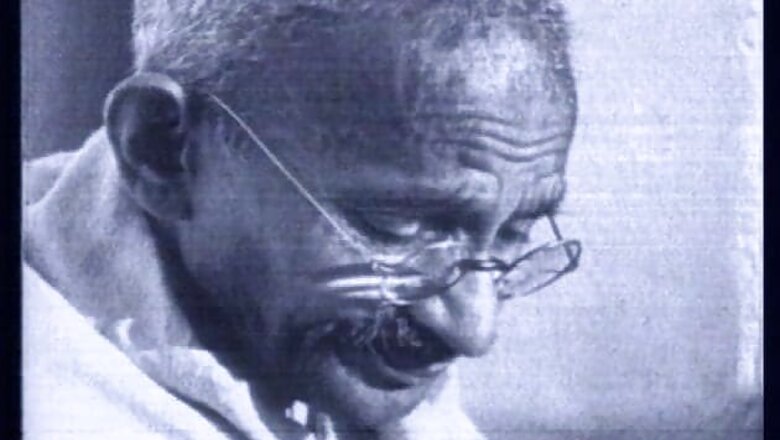
views
The Quit India Movement or the August Movement was a civil disobedience movement launched By MK Gandhi and the Indian National Congress in August 1942.
The call for determined but passive resistance was issued on August 8 in Bombay when the Congress adopted the historic 'Quit India Resolution' which declared among other things that the immediate ending of the British rule in India was an urgent necessity. Gandhiji declared: "Let every Indian consider himself to be a free man ... Mere going to jail would not do."
The British were quick to act. Almost the entire Indian National Congress leadership, and not just at the national level, was imprisoned early morning next day i.e August 9. The numbers according to certain sources were around 60,000. Many of them were released only after the War ended in 1945.
The failure of the Cripps' Mission and the uncertainties about World War II that was still hanging in the balance presented Indian leaders to put pressure on the British rulers. In 1942, the Japanese forces were knocking on India's doors in Burma. Gandhiji though it was the right time to raise the 'Quit India' slogan.
The All-India Congress Committee proclaimed a mass protest demanding what Gandhi called "an orderly British withdrawal" from India.
Following the arrest of the leaders including Gandhiji, the entire country rose up in protest. Bereft of leadership, the movement did not follow a charted course.
Despite Gandhiji's appeal to the people to refrain from violent acts, brutal police action saw people taking to violence in isolated incidents.
The leaderless mass reacted in any manner they could. Students, industrial workers, peasants participated in very large numbers. The movement gained its highest intensity in Bengal, Madras, Uttar Pradesh, Punjab and Bihar. In several places like Tomluk in Bengal, rebels even formed own 'national government' or 'Jatiya Sarkar'.
What is interesting about the Quit India movement is that the Congress had failed to rally political support for the movement. The Hindu Mahasabha and Muslim League opposed it as they could not be seen to be supporting Congress. The communist parties opposed it as they thought defeat of Nazi Germany was of more immediate necessity though many of them, specially in Bengal, Madras and Punjab, took active part in the movement.
More than 1,00,000 arrests and brutal police action later, the movement was put down. But the Quit India movement carried clear signals to London that British days in India were numbered.


















Comments
0 comment